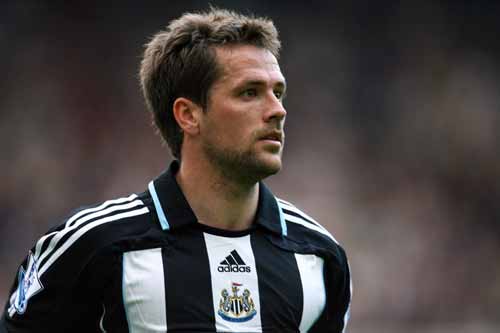Stability helps Mersey beat Tyne and Wear hands down

The North East meets the North West today and it is unsurprising to note that the clubs from Merseyside arrive in better fettle than those from Tyne & Wear. While Liverpool chase down Manchester United and a possible league title, and Everton prepare for an FA Cup final, Newcastle United and Sunderland are in a cold sweat over which league they will be in next season. The wearing of stripes, black or red, cannot conceal the odour of relegation.
But the followers of Newcastle and Sunderland are not in shock. It might be 20 years since Newcastle's last relegation, and they may have become valued members of the Premier League for the scale of their fanbase and the colour of their football under Kevin Keegan and Bobby Robson, but those of longer Newcastle persuasion are fully aware that the club has had spells of second-tier football in the 1960s, 70s, 80s and in the early 90s.
"Less than any other fans in the country do we demand instant success," said phlegmatic lifetime fan Doug Sutherland, who can recall the relegation of 1961. He said of it: "There was no sense that it was earth-shattering. We had a good team, scored a lot of goals." Newcastle scored 86 and still went down.
The message was that Newcastle know about non-elite football. It took four seasons to recover from 1961; six from 1978's drop.
Modern history is even more depressing for Sunderland fans. There was a time when Sunderland could honestly market themselves – which they did on the front of match programmes – as the "only club which has never played in any other than the First Division".
Elected to the top flight in 1890, Sunderland stayed there through two World Wars and won the league six times. Then 1958 happened. Even with Don Revie in the team, Sunderland were relegated for the first time and some could say the club has not recovered yet.
Since 1958, Sunderland have been relegated another eight times, including in 1987 under Lawrie McMenemy, to the old Third Division. That level of yo-yo movement makes stability – a core value at Goodison Park and Anfield – impossible.
Without stability, strategic planning stalls, which is why current chairman Niall Quinn craves the safety line this season. "We're all about getting over the line and then building again next season," Quinn said. Champions' League revenue has distanced Liverpool and the top four from the rest but Quinn sees a model in Everton. "If the reporting is accurate then David Moyes has done it with very little money," Quinn said. "They seem to progress year in, year out and to reach a Cup final means they've separated two of the top four. For Everton to do that gives us hope."
The comparison with Merseyside is a contrast. There may have been times when Everton and Liverpool fans have had cause to grumble, but these are relative. Even in those bad days under Graeme Souness at Anfield, Liverpool's worst finish was eighth. It is 55 years since Liverpool experienced relegation.
Everton have not been relegated from the top flight since 1951, though there have been close calls, and recent ones. Everton had last-day issues in 1998 and famously four years earlier when with nine minutes of the season remaining, Everton were down. Then Graham Stuart scored a winner against Wimbledon to make it 3-2 and Sheffield United dropped instead.
Such a prolonged contrast must have specific explanations but broad features do stand out: in the last 15 years, for example, Liverpool have had three managers, Everton four; Sunderland have had seven, Newcastle have had 10.
Geography, too, matters. Even when he was Sunderland manager Roy Keane talked of the North East being "up there". Unquestionably players did think that, and do. Before the first Keegan era, Newcastle's record signings were from Wimbledon, Dave Beasant and Andy Thorn.
When it comes to major trophies collected, the contrast is just as severe (see below). When this is listed it seems more amazing that Sunderland and Newcastle's support has held up. Newcastle may be relegated with an average crowd of 48,000.
"It's sad," said Alan Shearer, "to see Sunderland and Newcastle at the wrong end of the table and Liverpool and Everton are up there challenging. We believe up here that we should be there; we don't have a right, but we believe. Whether it's bad money spent or bad decisions made, the fact is that we're not."
North West v North East
EVERTON
Major trophies won in the last 40 years: Six (3 League titles – 1970, 1985, 1987; 2 FA Cups – 1984, 1995; 1 Cup Winners' Cup – 1985)
Attendances: League average for 2008/09 (35,433)
Amount spent on transfers since summer 2008: £22m
LIVERPOOL
Trophies: 32 (11 League titles – 1973, 1976, 1977, 1979, 1980, 1982, 1983, 1984, 1986, 1988, 1990; 6 FA Cups – 1974, 1986, 1989, 1992, 2001, 2006; 7 League Cups – 1981, 1982, 1983, 1984, 1995, 2001, 2003; 5 European Cups – 1977, 1978, 1981, 1984, 2005; 3 Uefa Cups – 1973, 1976, 2001)
Attendances: League average for 2008/09 (43,562)
Amount spent on transfers: £40.3m
NEWCASTLE
Trophies: 1 (Inter-Cities Fairs Cup, 1969)
Attendances: League average for 2008/09 (48,405)
Amount spent on transfers: £27.5m
SUNDERLAND
Trophies: 1 (FA Cup, 1973)
Attendances: League average for 2008/09 (39,966)
Amount spent on transfers: £24.7m
James Mariner
Subscribe to Independent Premium to bookmark this article
Want to bookmark your favourite articles and stories to read or reference later? Start your Independent Premium subscription today.

Join our commenting forum
Join thought-provoking conversations, follow other Independent readers and see their replies